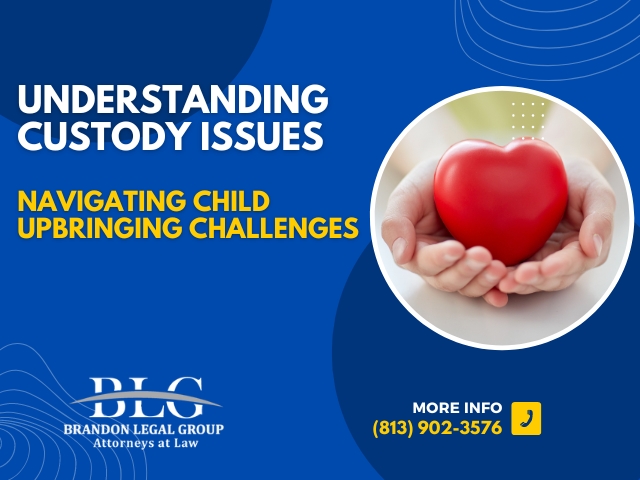Child custody is a complex and sensitive issue when parents separate or divorce. One of the most challenging aspects of child custody is the difficulty in the child’s upbringing, particularly when accessing the child’s information. In this article, we’ll explore some challenges parents may face in raising their children after a divorce or separation and how they can overcome them.
1. Limited access to the Child’s Information
One of the most significant challenges for parents who do not have primary custody is limited access to their child’s information. This includes information about the child’s health, education, and general welfare. Access to this information is necessary for non-custodial Parents can make informed judgments about their child’s upbringing if they have access to information.
Hypothetic example: Sarah and John are divorcing, and their child, Emily, will live with Sarah. John is concerned about Emily’s health and education but finds obtaining the necessary information from Sarah challenging. Sarah is reluctant to share the information with John, citing privacy concerns. This puts John in a difficult position, as he wants to be involved in Emily’s life but feels excluded from important decisions.
2. Lack of Communication Between Parents
Communication is crucial for successful co-parenting, but it can be challenging for parents going through a divorce or separation. The lack of communication between parents can lead to misunderstandings, conflicts, and a breakdown in the parent-child relationship. It can also make it difficult for parents to make decisions together and to provide consistent parenting.
Hypothetic example: Mark and Anna are separated, and their child, Peter, lives with Anna. Mark and Anna have different parenting styles and values, and they often argue about how to raise Peter. However, they rarely communicate directly, which leads to miscommunication and confusion. Peter senses the tension between his parents and feels caught in the middle.
3. Inconsistency in Parenting
When parents’ parenting approaches or values disagree, it can lead to inconsistent parenting, confusion, and stress for the child. This can happen even when parents are on good terms and communicate well. Inconsistency in parenting can affect the child’s emotional well-being, behavior, and development.
Hypothetic example: Rachel and Tom are divorced, and their child, Jacob, spends time with both of them. Rachel is strict and structured, while Tom is more relaxed and permissive. Jacob enjoys spending time with his parents but finds adjusting to their parenting styles challenging. In addition, he often gets mixed messages about what is expected of him, which makes him feel anxious and unsure.
4. Difficulties in Co-Parenting
Co-parenting can be tricky, even when parents are committed to working together for their child’s well-being. It requires compromise, patience, and empathy, which can be challenging when emotions run high. External factors such as new partners, relocation, or job changes can also affect co-parenting.
Hypothetic example: Lisa and Mike are separated, and their child, Sofia, spends time with both of them. Lisa starts dating a new partner, who Sofia dislikes. Sofia becomes increasingly resistant to spending time with Lisa and her new partner, which creates tension between Lisa and Mike. Lisa and Mike struggle to find a solution that works for everyone and maintains a healthy co-parenting relationship.
5. Legal Challenges
Child custody can also involve legal challenges, such as disagreements over parenting time, child support, or relocation. These challenges can be emotionally and financially draining for both parents and may require the assistance of a family law attorney. Sometimes, parents may have to go to court to resolve their differences. A family law attorney can help parents navigate the legal system and ensure that their child’s best interests are considered in any legal challenges related to the child’s upbringing.
Hypothetic example: Kate and David are divorced, and their child, Mia, lives with Kate. David has been struggling to pay child support and wants to modify the arrangement. Kate disagrees and refuses to negotiate. David decides to hire a family law attorney to help him navigate the legal system and protect his rights as a parent.
 How a Family Law Attorney Can Help:
How a Family Law Attorney Can Help:
1. Mediation and Negotiation:
A family law attorney can help parents communicate effectively and negotiate an agreement that works for everyone. Mediation is when a neutral third party helps parents reach a compromise. Mediation can be a cost-effective and efficient way to resolve conflicts without going to court.
2. Legal Representation
If mediation is unsuccessful or the issues are complex, a family law attorney can represent parents in court. An attorney can help parents present their case effectively, protect their rights, and ensure their child’s best interests are considered.
3. Modification and Enforcement
A family law attorney can help parents modify or enforce existing court orders, such as custody or child support. A modification may be necessary if there is a significant change in circumstances, such as a job loss or a relocation. In addition, enforcement may be required if one parent is not following the court order.
Conclusion
Child custody is a challenging issue that can impact the child’s upbringing in many ways. Access to the child’s information, communication, consistency in parenting, co-parenting, and legal challenges are some of the difficulties that parents may face. A family law attorney can help parents overcome these challenges by providing legal advice and representation. With the proper support and guidance, parents can work together to provide a loving and stable environment for their children after a divorce or separation.
